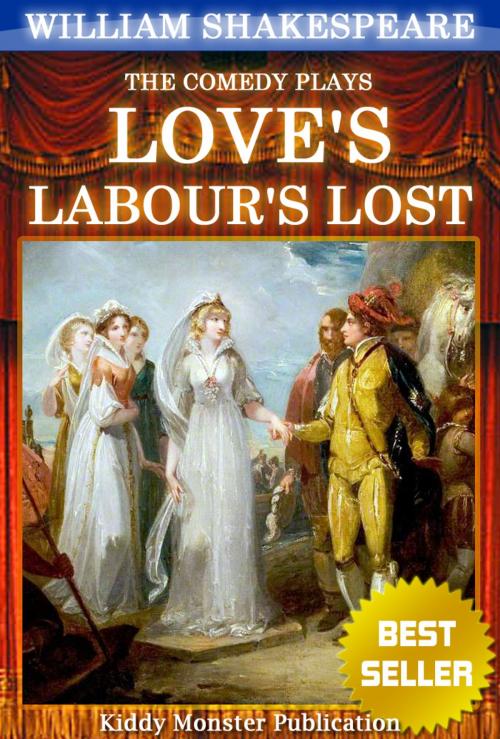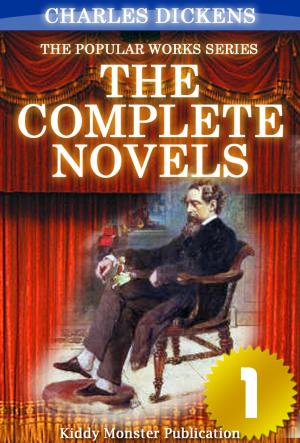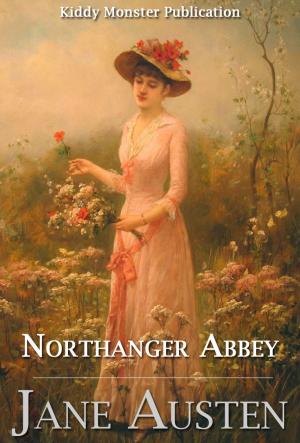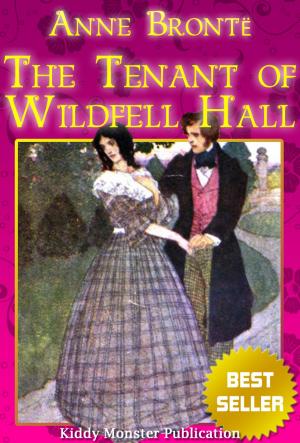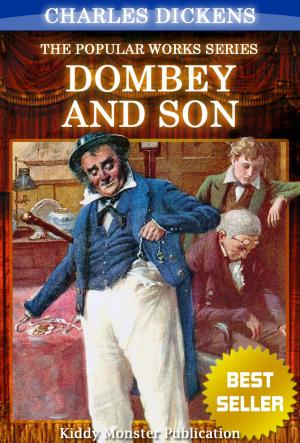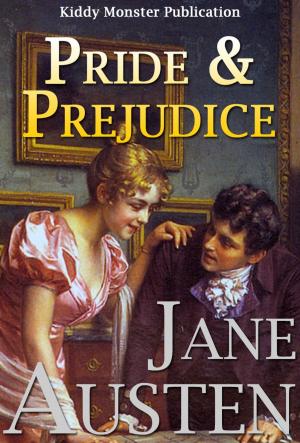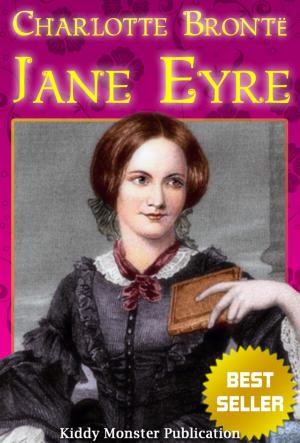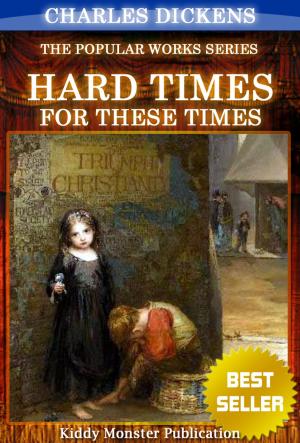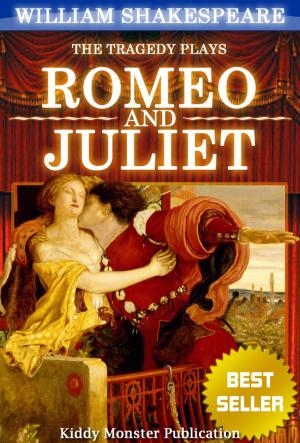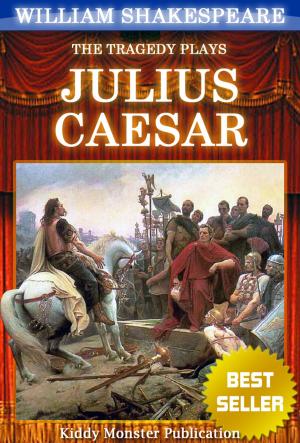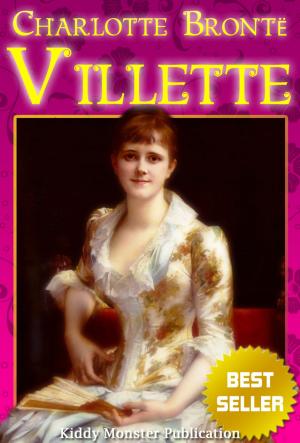Love's Labours Lost By William Shakespeare
With 30+ Original Illustrations,Summary and Free Audio Book Link
Fiction & Literature, Literary Theory & Criticism, British, Nonfiction, Entertainment, Drama, Shakespeare| Author: | William Shakespeare | ISBN: | 9789879990360 |
| Publisher: | Kiddy Monster Publication | Publication: | February 11, 2013 |
| Imprint: | Language: | English |
| Author: | William Shakespeare |
| ISBN: | 9789879990360 |
| Publisher: | Kiddy Monster Publication |
| Publication: | February 11, 2013 |
| Imprint: | |
| Language: | English |
Love's Labours Lost By William Shakespeare - With 30+ Original Illustrations,Summary and Free Audio Book Link
FEATURES:
• Title contains every original Illustrations from Danziel Brothers.
• Title contains Summary
• FREE audio book link at the end of the book
• William Shakespeare's Biography
• William Shakespeare's Top Quotes
• Easy to navigated Active Table of Contents
• High formatting quality and standards, manually crafted by professionals
Love's Labour's Lost is one of William Shakespeare's early comedies, believed to have been written in the mid-1590s, and first published in 1598.
The play opens with the King of Navarre and three noble companions, Berowne, Dumaine, and Longaville, taking an oath to devote themselves to three years of study, promising not to give in to the company of women – Berowne somewhat more hesitantly than the others. Berowne reminds the king that the princess and her three ladies are coming to the kingdom and it would be suicidal for the King to agree to this law. The King denies what Berowne says, insisting that the ladies make their camp in the field outside of his court. The King and his men meet the princess and her ladies. Instantly, they all fall comically in love.
The main story is assisted by many other humorous sub-plots. A rather heavily-accented Spanish swordsman, Don Adriano de Armado, tries and fails to woo a country wench, Jaquenetta, helped by Moth, his page, and rivalled by Costard, a country idiot. We are also introduced to two scholars, Holofernes and Sir Nathaniel, and we see them converse with each other in schoolboy Latin. In the final act, the comic characters perform a play to entertain the nobles, an idea conceived by Holofernes, where they represent the Nine Worthies. The four Lords – as well as the Ladies' courtier Boyet – mock the play, and Armado and Costard almost come to blows.
At the end of this 'play' within the play, there is a bitter twist in the story. News arrives that the Princess's father has died and she must leave to take the throne. The king and his nobles swear to remain faithful to their ladies, but the ladies, unconvinced that their love is that strong, claim that the men must wait a whole year and a day to prove what they say is true. This is an unusual ending for Shakespeare and Elizabethan comedy. A play mentioned by Francis Meres, Love's Labour's Won, is believed by some to be a sequel to this play.
Love's Labours Lost By William Shakespeare - With 30+ Original Illustrations,Summary and Free Audio Book Link
FEATURES:
• Title contains every original Illustrations from Danziel Brothers.
• Title contains Summary
• FREE audio book link at the end of the book
• William Shakespeare's Biography
• William Shakespeare's Top Quotes
• Easy to navigated Active Table of Contents
• High formatting quality and standards, manually crafted by professionals
Love's Labour's Lost is one of William Shakespeare's early comedies, believed to have been written in the mid-1590s, and first published in 1598.
The play opens with the King of Navarre and three noble companions, Berowne, Dumaine, and Longaville, taking an oath to devote themselves to three years of study, promising not to give in to the company of women – Berowne somewhat more hesitantly than the others. Berowne reminds the king that the princess and her three ladies are coming to the kingdom and it would be suicidal for the King to agree to this law. The King denies what Berowne says, insisting that the ladies make their camp in the field outside of his court. The King and his men meet the princess and her ladies. Instantly, they all fall comically in love.
The main story is assisted by many other humorous sub-plots. A rather heavily-accented Spanish swordsman, Don Adriano de Armado, tries and fails to woo a country wench, Jaquenetta, helped by Moth, his page, and rivalled by Costard, a country idiot. We are also introduced to two scholars, Holofernes and Sir Nathaniel, and we see them converse with each other in schoolboy Latin. In the final act, the comic characters perform a play to entertain the nobles, an idea conceived by Holofernes, where they represent the Nine Worthies. The four Lords – as well as the Ladies' courtier Boyet – mock the play, and Armado and Costard almost come to blows.
At the end of this 'play' within the play, there is a bitter twist in the story. News arrives that the Princess's father has died and she must leave to take the throne. The king and his nobles swear to remain faithful to their ladies, but the ladies, unconvinced that their love is that strong, claim that the men must wait a whole year and a day to prove what they say is true. This is an unusual ending for Shakespeare and Elizabethan comedy. A play mentioned by Francis Meres, Love's Labour's Won, is believed by some to be a sequel to this play.
